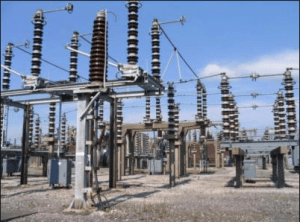G7 Energy Ministers focus on electricity in Africa
 Energy Ministers from the G7 industrialised countries have reiterated their commitment to increase access to affordable, reliable, sustainable and modern energy in Africa.
Energy Ministers from the G7 industrialised countries have reiterated their commitment to increase access to affordable, reliable, sustainable and modern energy in Africa.
At the just-ended meeting in Rome, under the Italian Presidency, the G7 ministers from Canada, France, Germany, Italy, Japan, the UK, the Secretary of Energy of the US, and the European Commissioner for Climate Action and Energy said they “recognised the great potential of sustainable, reliable and secure energy access in Africa”.
To highlight the importance of this, Italy’s Minister of Economic Development, Carlo Calenda, hosted a side event dedicated to Africa, focusing on the current state of its energy market and how to provide power to more people on a continent where over 600 million do not have access to electricity.
“Africa’s transition to sustainable energy relies on the appropriate enabling policy and regulatory frameworks on the one hand, and on bottom-up innovation dynamics and business models on the other hand,” a G7 concept note said.
“The empowerment of both will advance energy access in Africa and consequently unlock vast investment and development of opportunities on the continent.”
It was good news for African countries when the ministers stressed that “fossil fuels will remain a part of the global energy mix for some time” and agreed to continue to progressively reduce their greenhouse gas (GHG) emissions.
“In this context, we encourage countries which opt to make use of carbon capture, use and storage (CCUS) to collaborate on large-scale demonstration projects and related technologies,” a communiqué issued after the meeting said.
The ministers stressed: “…continued investment in the energy sector, in particular in quality energy infrastructure, in upstream development, in low emissions and in low carbon technologies and in energy efficiency, remained critically important for ensuring future energy security and mitigating risks to sustainable growth of global economy.”
They noted the significant progress achieved during the last three years to tighten energy security for sustainability and growth.
African countries have been arguing in favour of using fossil fuels to provide electricity on the continent while making use of new technology to reduce emissions.
Recently, former UN Secretary General Kofi Annan backed the use of fossil fuels – especially with the continent’s large endowment of coal – to bridge Africa’s huge energy gap when launching the Africa Progress Panel (APP) report, Lights Power Action: Electrifying Africa.
“What we are advocating is that African governments harness every available energy option, in a cost-effective and technologically efficient manner so that no one is left behind,” Mr Annan said.
“Each country needs to decide on the most cost-effective, technologically efficient energy mix that works best for its own needs.”
Mr. Annan added that: “Governments and their partners need to seize the opportunity to re-imagine their energy futures.
“Africa’s energy deficit continues to stifle economic growth, job creation, agricultural transformation, and improvements in health and education.
“Meeting Sustainable Development Goal 7, the energy goal, is a pre-condition for achieving many of the other goals.”
The Rome event, Africa 2030: Empowering the continent through innovation, green technology solutions and capacity building, focused on speeding up the use of “innovative sustainable energy solutions” in Africa.
It was held under the aegis of the EU-Africa Energy Partnership, which provides the opportunity for both sides to continue talking about how best to use improved technology to help Africa make use of its massive coal resource to provide more power on the continent without falling foul of climate change regulations.
The US Secretary for Energy, Rick Perry, spoke of his country’s commitment “to ensuring universal access to affordable and reliable energy in order to promote economic growth and energy security”.
He said that the Trump administration “believes that economic growth and the environment can successfully go hand-in-hand”.
Mr Perry said although the International Energy Agency (IEA) noted during the meeting that renewables would continue to play an important role in increasing access to electricity, “traditional sources are still needed for energy and economic security into the foreseeable future”.
“Therefore, we believe it is wise for countries to use and pursue highly efficient energy resources,” he added.
These included “high efficiency, low-emission coal and natural gas with adequate financing from multi-lateral development banks and private sector investment”.
Source: GNA
